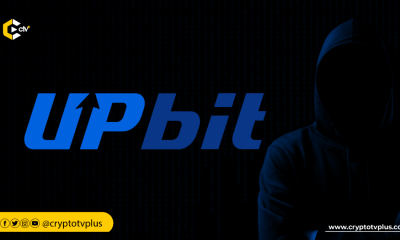News
Telegram faces scrutiny in South Korea amid rising Deepfake cases

South Korean authorities have launched an investigation into the encrypted messaging app Telegram to determine whether it has been complicit in the distribution of sexually explicit, deepfake content involving South Korean women.
This move comes as South Korea is facing a surge in deepfake sex crime cases, with the number rising from 156 in 2021 to 297 so far in 2024. Most victims and perpetrators are teenagers, and South Korea is the country most targeted by deepfake pornography, with 53% of victims being singers and actresses.
Woo Jong-soo, who leads the National Office of Investigation, said that just like France did, the Seoul Metropolitan Police Agency started looking into Telegram’s company before officially charging it. The charges are related to helping with crimes involving deepfake videos.
The South Korean government plans to take several measures to address this issue. Authorities will ask Telegram and other social media platforms to actively help delete and block deepfake sex content.
Additionally, a 24-hour hotline for victims will be set up, and the number of regulatory personnel monitoring digital sex crimes will be doubled. The government also intends to push for stricter laws to criminalize the purchase or viewing of sexually exploitative deepfakes and will conduct a seven-month crackdown on online sex crimes.
Telegram has stated that it actively moderates harmful content on its platform, including illegal pornography. The deepfake crisis has engulfed over 500 schools and universities in South Korea, with many underage victims. The government’s crackdown aims to tackle the growing problem and protect victims, especially young women and students.
Government investigations and bans on Telegram
Telegram is facing big challenges that could affect its operations and reputation worldwide. One major issue is increased attention from governments about how it might be used for criminal activities.
In India, for example, authorities are looking into the app over its possible role in crimes like a major exam paper leak. While Telegram isn’t banned in India right now, the investigation is causing worry about its future in a country where over 5 million people use it for secure communication.
Besides this, Telegram’s co-founder and CEO, Pavel Durov, was recently held near Paris in connection with an investigation into alleged crimes related to the app, including organized crime and drug trafficking.
This situation has raised more concerns about the platform’s safety and how well it follows regulations. Telegram has responded by saying that Durov has “nothing to hide” and calling the claims “absurd.”
Globally, Telegram has been the subject of numerous bans and restrictions. Since 2015, 31 countries have implemented temporary or permanent bans on the platform, affecting over 3 billion people.
























